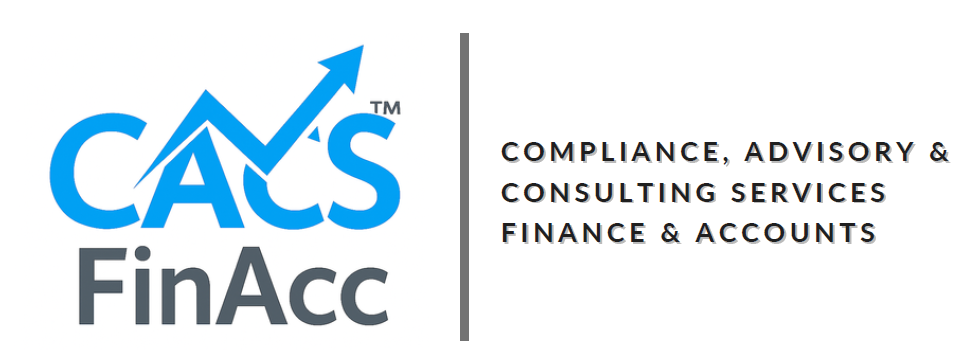ITR-3 Return Filing Services
ITR-3 Filing
ITR-3 is specifically designed for individuals and Hindu Undivided Families (HUFs) who have income from profits and gains of business or profession. This includes both proprietary businesses and professional income. For AY 2025-26, significant amendments and procedural changes have been introduced, aligning with the latest Finance Act, 2023.
CACSFinacc Services offers specialized ITR-3 Return Filing solutions tailored for individuals and Hindu Undivided Families (HUFs) engaged in business or professional activities. With the latest amendments for Assessment Year (AY) 2025-26, our expert team ensures accurate, compliant, and timely filings.
Who Should File ITR-3?
ITR-3 is applicable to:
- Individuals and HUFs with income from business or profession.
- Partners in firms earning income like salary, commission, bonus, or interest.
- Taxpayers with income from salary/pension, house property, capital gains, and other sources.
- Those earning income from: Proprietary business, Professional services (e.g., CA, Doctor, Architect), Partnership firms (only for individual partners, not the firm itself), Income from salary or pension, house property, capital gains, or other sources.
Note: Those eligible for ITR-1, ITR-2, or ITR-4 should not use ITR-3.
Who should not file the ITR 3 Form?
An individual or Hindu Undivided Family (HUF) earning income as a partner of a partnership firm engaged in a business or profession is not eligible to file ITR-3. In such cases, they should file ITR-2 instead.
Due Date for Filing Form ITR3
The due date for filing the ITR Form 3, which is the income tax return, varies depending on whether the case is an audit case or a non-audit case for different assessment years:
- For Assessment Year 2025-26:
- Non-audit Cases: The due date is July 31, 2025
- Audit Cases: The due date is October 31, 2025
- These dates are subject to change by the income tax authorities, so it's essential to stay updated with any revisions or extensions of the due dates.
These dates are subject to change by the income tax authorities, so it's essential to stay updated with any revisions or extensions of the due dates.
Late Filing Penalties for ITR3 Form
The penalties for late filing of the ITR3 form in India are as follows:
If you file your return after the due date but before December 31 of the assessment year:
- A late filing fee of ₹ 5,000 may be levied.
- If you file your return after December 31 of the assessment year:
- A late filing fee of ₹ 10,000 may be levied.
It's important to note that the late filing fee may vary based on the taxpayer's total income and other factors. Additionally, if your total income is less than ₹ 5 lakh, the maximum late filing fee is capped at ₹ 1,000. Therefore, it's advisable to file your ITR form 3 on time to avoid these penalties and any potential legal consequences.
Structure of ITR-3
ITR-3 consists of the following sections:
- Part A - General Information
- Part B - Gross Total Income
- Schedule BP - Income from Business or Profession
- Schedule CG - Capital Gains
- Schedule OS - Income from Other Sources
- Schedule VDA - Virtual Digital Assets
- Schedule VI-A - Deductions and Exemptions
- Part B - Total Income and Tax Computation
- Verification and Signatures
How to File ITR-3?
-
Online Filing (e-Filing):
- Log in to the Income Tax e-Filing portal.
- Select ITR-3 and assessment year 2025-26.
- Fill in the relevant details and upload necessary documents.
- Submit and e-verify using Aadhaar OTP, EVC, or DSC.
-
Offline Filing:
- Download the ITR-3 Java or Excel utility from the Income Tax portal.
- Fill, validate, and generate XML.
- Upload the XML on the portal.
Documents required for ITR 3 Form
To file your income tax return (ITR) on CACSFinacc for ITR-3, the following documents are needed.
- PAN (Permanent Account Number)
- Aadhaar Card
- Bank account details (account number and IFSC code)
- Form 16, if applicable (for salaried individuals)
- Details of your investments
- Books of accounts (if you have a business or professional income)
Having these documents ready will make the ITR filing process smoother and more efficient.
Common Mistakes to Avoid
- Incorrect Personal Details: PAN, Name, and Address should match with IT records.
- Skipping VDA Reporting: Ensure to fill Schedule VDA for digital assets.
- Mismatched TDS Details: Cross-check with Form 26AS and AIS.
- Improper Claim of Deductions: Validate proofs for claimed deductions.
Key Amendments for AY 2025-26
The Finance Act, 2023, has brought crucial changes:
-
Capital Gains Reporting Enhancements:
- Separate disclosure for capital gains on assets sold before and after July 23, 2024.
- Buyback proceeds from listed companies post October 1, 2024, to be reported as 'Nil' consideration under capital gains and also under 'Income from Other Sources'.
-
Asset and Liability Disclosure Threshold Increased:
- Mandatory reporting only if total income exceeds ₹1 crore, up from the previous ₹50 lakh.
-
Tax Regime Selection Disclosure:
- Taxpayers must specify their choice between the old and new tax regimes and provide details of Form 10-IE or 10-IEA, as applicable.
-
Mandatory TDS Section Specification:
- Taxpayers are now required to mention the TDS section under which tax was deducted for each income source.
-
High-Value Transaction Reporting:
-
Mandatory disclosure for:
- Cash deposits over ₹1 crore in current accounts.
- Foreign travel expenses exceeding ₹2 lakh.
- Foreign travel expenses exceeding ₹2 lakh.
- Electricity bills over ₹1 lakh.
- Credit card payments exceeding ₹10 lakh.
-
Mandatory disclosure for:
- Cryptocurrency and Virtual Digital Asset Reporting: Income from Virtual Digital Assets (VDAs) must be separately disclosed under Schedule VDA. with a 30% tax rate applied.
- New Deduction Limits: Revised limits under Section 80C, 80D, and 80G.
- Advanced Tax Computation: Adjustments in advance tax liability calculations for businesses with fluctuating cash flows.
Why Choose CACSFinacc Services?
- Expertise: Our team stays updated with the latest tax laws and amendments.
- Accuracy: Ensuring error-free filings to minimize the risk of notices.
- Timeliness: Adherence to all deadlines to avoid penalties.
- Confidentiality: Strict measures to protect your financial data.

